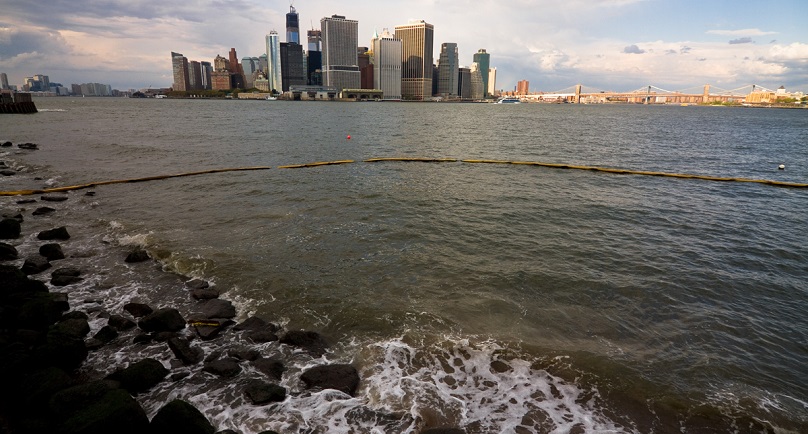By Irene Klotz
CAPE CANAVERAL, Fl. (Reuters) – Sea levels worldwide rose an average of nearly 3 inches (8 cm) since 1992, the result of warming waters and melting ice, a panel of NASA scientists said on Wednesday.
In 2013, a United Nations panel predicted sea levels would rise from 1 to 3 feet (0.3 to 0.9 metres) by the end of the century. The new research shows that sea level rise most likely will be at the high end of that range, said University of Colorado geophysicist Steve Nerem.
Sea levels are rising faster than they did 50 years ago and “it’s very likely to get worse in the future,” Nerem said.
The changes are not uniform. Some areas showed sea levels rising more than 9 inches (25 cm) and other regions, such as along the U.S. West Coast, actually falling, according to an analysis of 23 years of satellite data.
Scientists believe ocean currents and natural cycles are temporarily offsetting a sea level rise in the Pacific and the U.S. West Coast could see a significant hike in sea levels in the next 20 years.
“People need to understand that the planet is not only changing, it’s changed,” NASA scientist Tom Wagner told reporters on a conference call.
“If you’re going to put in major like a water treatment plant or a power plant in a coastal zone … we have data you can now use to estimate what the impacts are going to be in the next 100 years,” Wagner said.
Low-lying regions, such as Florida, are especially vulnerable, added Michael Freilich, director of NASA’s Earth Science Division.
”Even today, normal spring high tides cause street flooding in sections of Miami, something that didn’t happen regularly just a few decades ago,” Feilich said.
More than 150 million people, mostly in Asia, live within 3 feet (1 metre) of the sea, he added.
The biggest uncertainty in forecasting sea level rise is determining how quickly the polar ice sheets will melt in response to warming temperatures.
“Significant changes are taking place today on ice sheets,” said Eric Rignot, a glaciologist at the University of California in Irvine. “It would take centuries to reverse the trend of ice retreat.”
Scientists said about one-third of the rise in sea levels is due to the expansion of warmer ocean water, one-third to ice loss from the polar ice sheets and the remaining third to melting mountain glaciers.
(Reporting by Irene Klotz; Editing by David Adams and Cynthia Osterman)
Copyright 2015 Thomson Reuters. Click for Restrictions.


